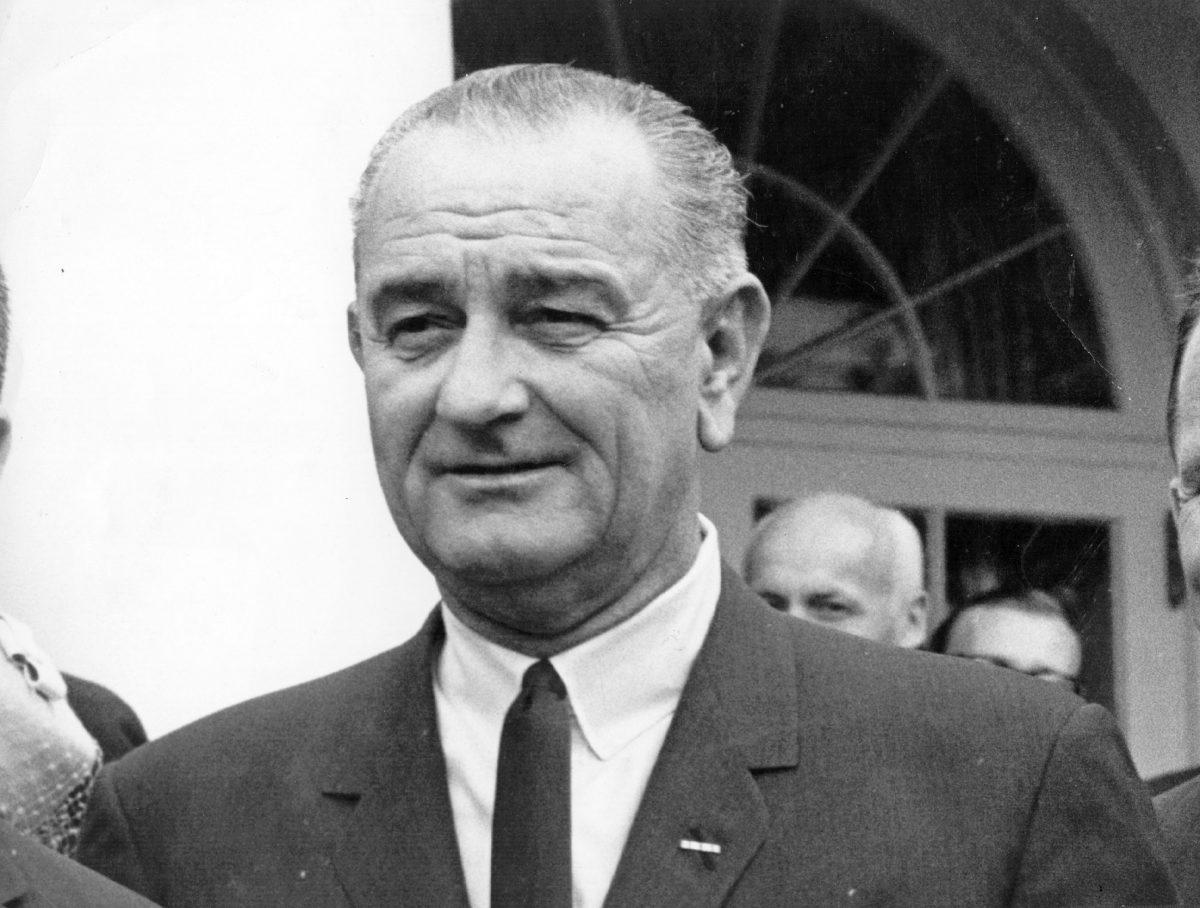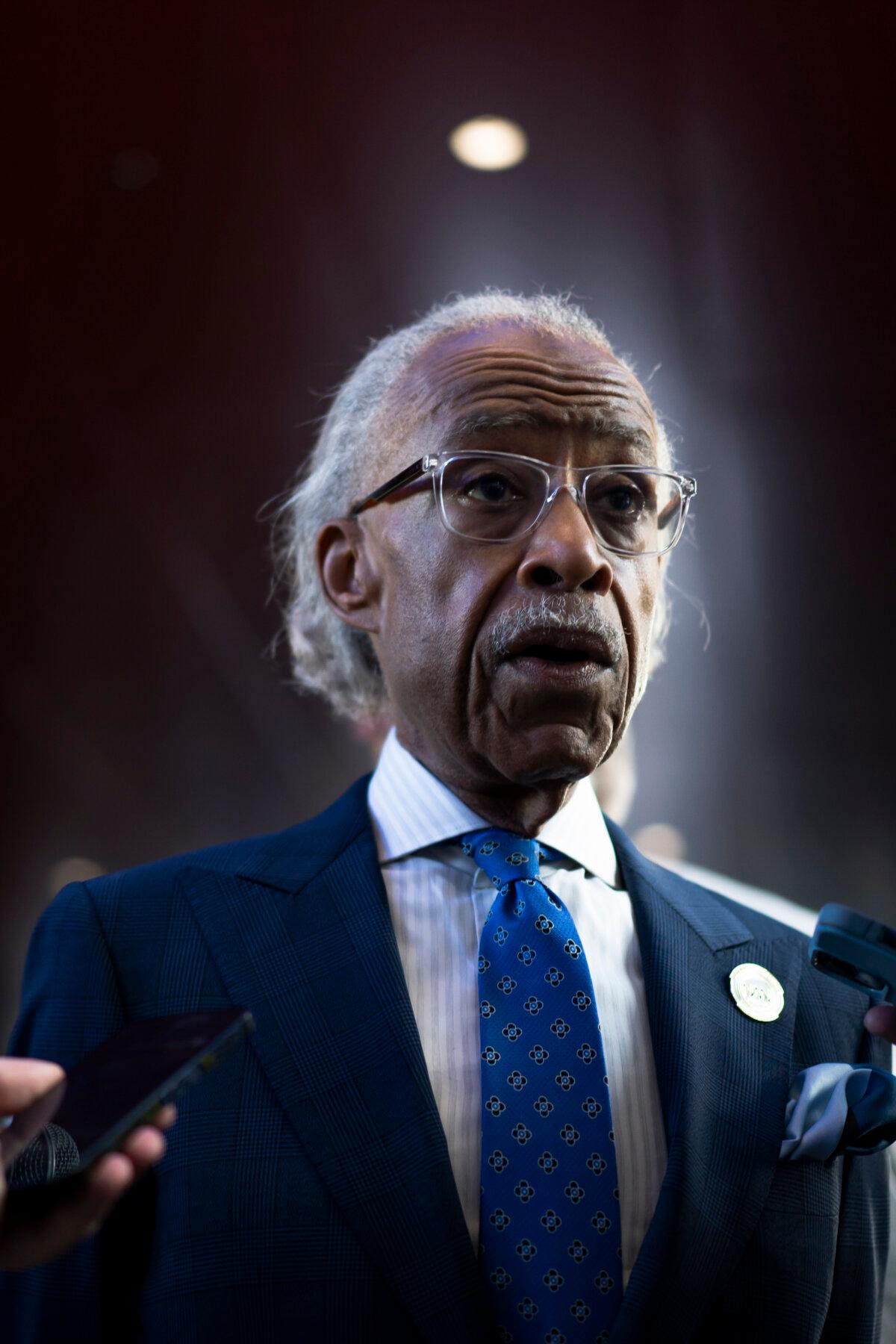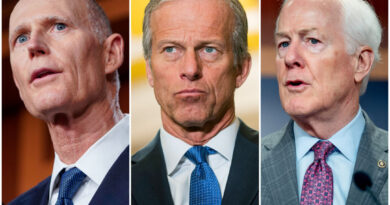Trump Revokes 60-Year-Old Affirmative Action Employment Requirement for Federal Contractors
The era of race- and gender-specific government hiring programs, spanning six decades, is coming to a close.
Trump’s order dated January 21, titled “Ending Illegal Discrimination and Restoring Merit-Based Opportunity,” primarily targets the cessation of diversity, equity, and inclusion (DEI) programs within the federal government and its contractors.
By linking DEI initiatives to previous “Affirmative Action” efforts, the order revokes Executive Order 11246, enacted by President Lyndon B. Johnson on September 24, 1965, marking the first significant policy derived from the Civil Rights Act of 1964.

President Lyndon Baines Johnson in 1965. Keystone/Getty Images
With Trump’s signature on the new directive, the 60-year-old mandate has been annulled, streamlining the federal contracting process and emphasizing that contractor hiring should be based on merit rather than race, gender, or other attributes.
The order mandates the Office of Federal Contract Compliance Programs to cease any initiatives, regulations, or directives that include considerations of “diversity,” “affirmative action,” or workforce “balancing.”
In another part of the order, Trump stated, “I further order all agencies to uphold our existing civil rights laws and to counter illegal DEI preferences, mandates, policies, programs, and activities in the private sector.”
Additionally, Trump has instructed all federal offices focused on DEI activities to place their staff on paid administrative leave and to shut down their facilities by the end of business on January 22, 2025.
The new order also eliminates a 1994 directive to “Address Environmental Justice in Minority Populations and Low-Income Populations,” a 2011 order for a “Coordinated Government-wide Initiative to Promote Diversity and Inclusion in the Federal Workforce,” and a 2016 presidential memo for “Promoting Diversity and Inclusion in the National Security Workforce.”

Rev. Al Sharpton during the last day of the Democratic National Convention (DNC) in Chicago on Aug. 22, 2024. Madalina Vasiliu/The Epoch Times
“Donald Trump may dismantle federal DEI programs significantly and retract federal funding aimed at enhancing diversity, but he cannot dictate where we choose to shop,” stated Sharpton.
“Businesses that believe they can backtrack on their commitments to improve, welcome diverse perspectives, or abandon their efforts will feel the effects of Black consumer spending power. We will begin to send a clear message in the next 90 days that we will not regress and will bring this issue to the forefront by targeting their profits.”
Conversely, supporters argued that the new order would promote fairness by prioritizing qualifications and reduce expenses for schools and businesses.
“From classrooms to corporate environments, Americans have experienced significant negative repercussions,” he noted. “DEI has inflated education budgets while instructing students what to think instead of how to think.”
According to GianCarlo Canaparo, a senior legal fellow at The Heritage Foundation’s Meese Center for Judicial and Legal Studies, the original 1965 order was particularly harmful since it “extended beyond defense contractors to universities, technology firms, and vast portions of the private sector.”
Canaparo asserted that the rescinded order “amplified racial consciousness and grievances, severely undermining the pursuit of a colorblind meritocracy.”
“To this day, Biden officials continue to reference it as a key authority empowering them to impose racial preferences,” Canaparo stated.





